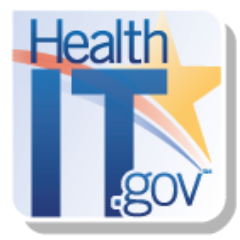 Advancing Interoperability and Health Information Exchange
Advancing Interoperability and Health Information Exchange
On March 7, 2013 CMS and HHS filed a notice in the Federal Register seeking input on policy and program changes to accelerate health information exchange. The goal of the notice was to solicit new ideas to advance the key issue of interoperability beyond the current process established through the CMS EHR Incentive program. The RFI sums up the challenge of interoperability in one simple sentence: The lack of widespread electronic HIE is a significant barrier to achieving truly coordinated, person-centered health care.
The RFI asked for comments to a series of 10 questions that run the gamut of health IT adoption challenges. The questions are summarized in Section III of the RFI. The comment period for the notice ended on April 22, 2013 with 207 comments submitted. Here is a rundown of a handful of notable comments received. Click on the link to view or download each organization’s full comments.
CORHIO: CORHIO supports expanding the definition of Meaningful Use eligible providers (EPs) to include LTPAC and Behavioral Health (BH) providers to promote HIE adoption with EHR standards for interoperability among this portion of the care continuum and improving shared behavioral and physical health information.
HIMSS: One barrier to HIE commonly cited is that cyberliability insurance is becoming 110 increasingly expensive. HIMSS supports programs to identify and encourage financially 111 sustainable business models that facilitate the secure exchange of interoperable health 112 information. Payment policies that pose economic disincentives could offset data lock-in, and 113 encourage information flow, could lead to greater exchange. Additionally, a mechanism that 114 could encourage vendors to integrate information from other platforms is greater cost 115 transparency of interfaces, particularly in implementing interfaces required for interoperability.
Kaiser Permanente: In addition to the more traditional push and query/response forms of data exchange, we recommend that CMS/ONC pilot two additional approaches. One alternative would examine direct access by authorized providers to each others electronic records for patients they are both treating. The second additional pilot we recommend is the actual integration of provider systems including organized health care arrangement groups (“OHCA”). When providers share common systems through such arrangements, their costs may be lower and the barriers to HIE substantially reduced.
Health Record Banking Alliance: Finalize the draft regulations that allow patients to request and directly receive their lab results in electronic form, allocate at least $50 million to competitively fund at least three large-scale health record banks (HRB) demonstration projects. Properly structured, such projects could be fully functional within six months after initiation, and provide assistance to existing HIEs to convert to HRBs.
eHealth Initiative: CMS and ONC have a diverse set of programs in place to facilitate the acceleration of health information exchange and improved interoperability efforts. HIEs continue to enter the market and evolve to meet the needs of providers and patients and increasing regulatory burden on a system that continues to mature would inhibit further development. eHI recommends that ONC consider an approach that utilizes public/private partnerships rather than a process entirely within federal regulatory processes.
AHIMA: AHIMA believes that it was unfortunate that Congress did not address long-term and post acute care providers in the ARRA-HITECH incentive program. It is clear that you agree as well and are trying to address both the movement of LTPAC to the use of EHRs as well as to improve the continuity of care. We hope that as we move forward strategies will be developed to consider and coordinate all aspects of care as well as work to accelerate those providers that have not had the resources or advantage of programs like Meaningful Use.
EHR Association: We strongly believe that the current Medicare ACO models will encourage exchange of health information to support the intermediate and final outcomes sought by ACOs – including care coordination, patient engagement, high measured quality, patient satisfaction, and cost performance. One of the very positive aspects of the current ACO regulations is that they are fairly non-prescriptive and focus on outcomes thus creating an organic and effective business case for exchange of health information. We think that it would be premature and counterproductive to force ACOs into engaging in exchange beyond what the unfolding dynamics of this model provide for.
